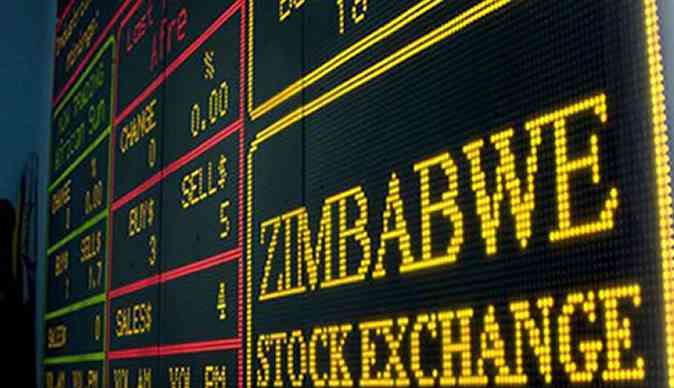
The coronavirus is spreading economic chaos around the globe, with predictions that the world will sink into recession this year. In Zimbabwe, from tourism to mining, from farmers to retailers, and from large manufacturers to street traders, the impact will be felt.
“The Vision 2030 is premised on a stable economic environment. The pandemic does not show that the stable economic environment will continue to exist,” President Emmerson Mnangagwa told the media on Tuesday, as he announced strict measures to prevent the spread of the virus.
Zimbabwe, already short of money, will have to divert resources towards the outbreak, Mnangagwa said.
Below is how the pandemic will hit Zimbabwe’s economy.
Knock on tourism Flight cancellations, travel bans and lockdowns mean people are not travelling, and will not be travelling for a long time to come.
The World Travel and Tourism Council says it could take up to 10 months before the industry starts to recover.
By the start of March, flights into the Robert Gabriel Mugabe International Airport had fallen by 30%, according to Evans Siziba, head of immigration at the Civil Aviation Authority of Zimbabwe. But this was before lockdowns became worse around the world, with many countries completely shutting down their borders and banning any travel.
According to Arnold Musonza, head of the Hospitality Association of Zimbabwe in Victoria Falls, some operators in the country’s main resort have lost all their bookings.
- Chamisa under fire over US$120K donation
- Mavhunga puts DeMbare into Chibuku quarterfinals
- Pension funds bet on Cabora Bassa oilfields
- Councils defy govt fire tender directive
Keep Reading
Many of Zimbabwe’s major source markets — the UK and Ireland, United States, Japan, Germany, France and China — are in lockdown. The hunting season, a lucrative time for the country when many American hunters arrive, is supposed to open in April, but bookings have been cancelled, players say. Emirates has cancelled flights into Zimbabwe and Zambia until May 20.
While Zimbabwe’s travel restrictions are not as tough as those of other neighbouring countries, the country is only part of an interlinked destination for tourists, and stricter travel bans in the region will keep visitors away.
This means Zimbabwe will lose out on a large chunk of the US$1 billion that it earns from the 2,2 million annual visitors to the country. Remittances down According to Zimstat’s Inter-Censal Demographic Survey of 2017, the majority of emigrants sent between US$101 to US$500 to Zimbabwe during the year. Some 52% of the surveyed emigrants reported sending money home.
The survey found 19% of all Zimbabwean households were “migrant households”, meaning they had at least one family member working outside the country.
Zimbabweans abroad sent home a total of US$635,4 million in 2019, according to Reserve Bank of Zimbabwe (RBZ)data. This was up 2,6% from 2018.
It will be a lot harder to send money home this year due to the fall of currencies of countries hosting large concentration of the Zimbabwean diaspora. As those currencies fall, Zimbabweans there will need to spend more to maintain the same amount of money they were sending home.
For example, in March 2019, a Zimbabwean in the UK needed £76 British pounds to send US$100 home. Now, after the pound fell to a 35-year low, that same Zimbabwean now needs £86 to send the same amount of money back home.
For a Zimbabwean in South Africa, where they needed R1 450 to send home an amount of US$100 they now need as much as R1 720. The rand has fallen hard since the outbreak, touching its lowest ever levels.
Many Zimbabweans abroad, like workers everywhere, are also losing their jobs as employers reel from the crisis.
With less remittances, the economy will have even lower consumer spending, while there will be less foreign currency for the country.
Even lower foreign direct investment (FDI)
Zimbabwe was already facing a sharp fall in foreign investment inflows. In 2019, FDI fell 60% from US$717,1 million in 2018 to US$259 million. Portfolio investments, a class of investments that includes assets such as shares, collapsed from US$54,7 million in 2018 to US$3,7 million in 2019.
This decline will fall even faster, as even those investors that were still braving Zimbabwe’s turbulence are likely to halt any plans to invest in the country due to the uncertainty brought by the virus. Inflows from donor agencies could also be hit, as countries scale back on foreign aid to focus on their own economies.
Delayed projects Zimbabwe is going to see a delay in infrastructure projects, many of them supported by China.
“In our case, we have seen key bilateral projects in many sectors, most notably in transport and infrastructure either being slowed down or coming to a complete halt,” Mnangagwa said on Tuesday. One such project is the project to expand the Hwange Thermal Power Station. The US$1,4 billion project, being undertaken by China’s Sinohydro, is meant to add 600MW of power to the national grid.
However, Energy minister Fortune Chasi says the project has been delayed as Chinese contractors have been unable to return to Zimbabwe. Forbes Chanakira, site manager, says the plan was to start commissioning Unit 7 of the project in April next year. However, work has stalled due to delays in the shipment of essential materials for construction.
Other Chinese-funded projects likely to slow down include the RGM International Airport expansion, as well as the new Parliament building.
In mining, Russian restrictions will affect the Russian-backed Darwendale Platinum Project, which had targeted to start construction in the second quarter.
The virus could also slow progress on talks between ASX-listed Prospect Resources and Russia’s Uranium One; the two are in talks over equity in Prospect and at least 51% of Prospect’s future lithium production from Arcadia Mine. Alrosa’s joint venture with the ZCDC, which hoped to start work in 2020, also faces possible delay.
Manufacturing and Retail China’s industrial output has fallen by 13,5% between January and February. This means two things; China is buying less raw materials from Zimbabwe, and local businesses that rely on Chinese products will face serious problems restocking on goods and equipment. Zimbabwe imported US$411 million worth of goods from China in 2019. This includes capital goods, which industry needs to keep running.
“We may have had a bit of stocks, but I think in the next few months we are going to feel the impact if China and other affected countries do not resume production soon,” says Confederation of Zimbabwe Industries vice-president Joseph Gunda.
Zimbabwe also imports a large quantity of consumer goods from China. Businesses there are only now beginning to open, after widespread closures and restrictions of shipping. This has hit everyone from large companies to small businesses and street traders, who live on hawking Chinese goods.
“I travel three times a year to China to buy equipment, usually around February. I am low on stock, and will have shut down my shop by April if supplies don’t resume,” according to Aaron Mhundwa, who runs a solar equipment and electronics shop in the Harare central business district. “Our suppliers say they are increasing prices because of low supplies. This means we, too, will have to increase prices,” he adds.
Zimbabwe’s total exports in 2019 stood at US$4,5 billion. A decline is expected. Commodities hit Asked at a Press conference on March 11 how the coronavirus would affect Zimbabwe, RBZ governor John Mangudya gave a sunny-side-up forecast; oil would fall, he said, and gold prices would rise. These two factors would help Zimbabwe’s economy, he said. But, so far, it looks like he got it wrong.
Gold spiked in the early days of the virus, as buyers piled up the safe-haven asset. But as the scale of the crisis is revealed, even gold is being hit. While investors often rush to gold in times of crisis, some are selling gold to cover unprecedented losses in other assets.
“Gold isn’t much of a safe haven when the economy and financial conditions are deteriorating faster than interest rates are falling,” wrote author and economist Jed Graham recently.
Prices of gold, chrome and platinum, all key minerals for Zimbabwe, are falling. This means Zimbabwe will earn less for its commodity exports due to the crisis, which will worsen the country’s forex crisis.
Tobacco China is also the biggest buyer of Zimbabwean tobacco, and the virus may impact on the auction season, which has already been delayed.
“So far we are not expecting any changes from them (Chinese buyers). They haven’t indicated any changes despite the issue of coronavirus. Their orders have been constant all these years; we expect them to continue to be the main buyers,” says Andrew Matibiri, chief executive officer of the Tobacco Industry and Marketing Board. — newZWire











